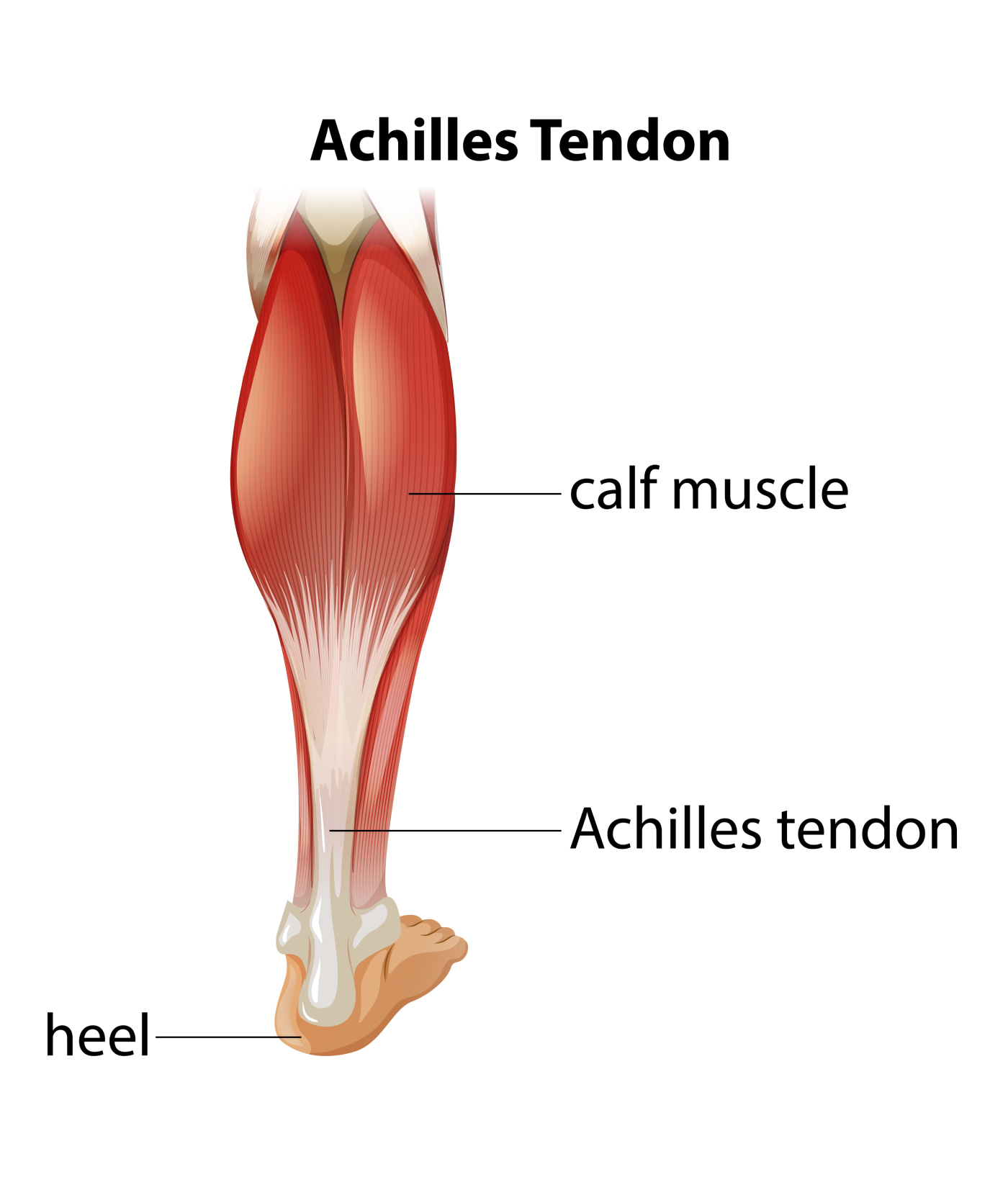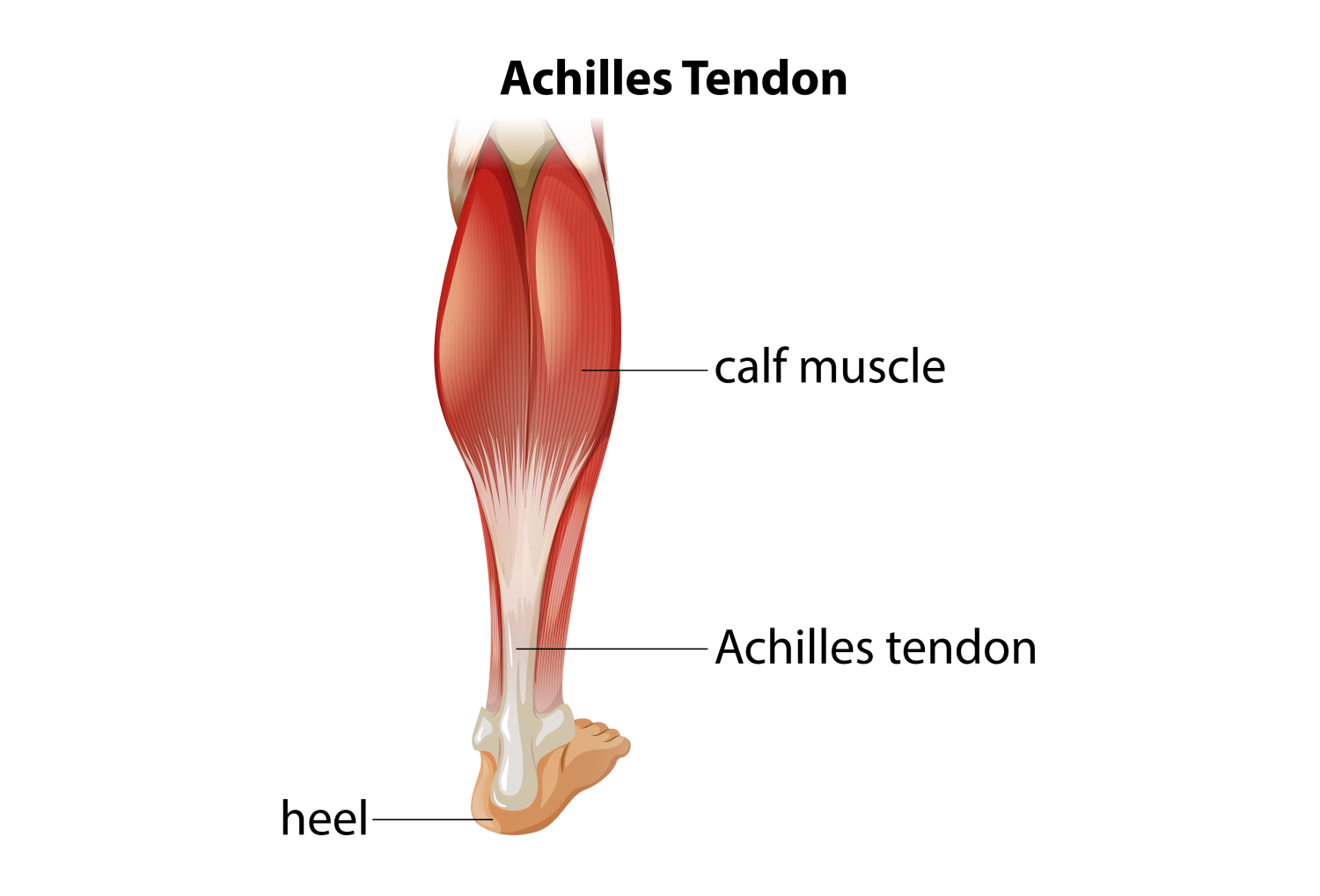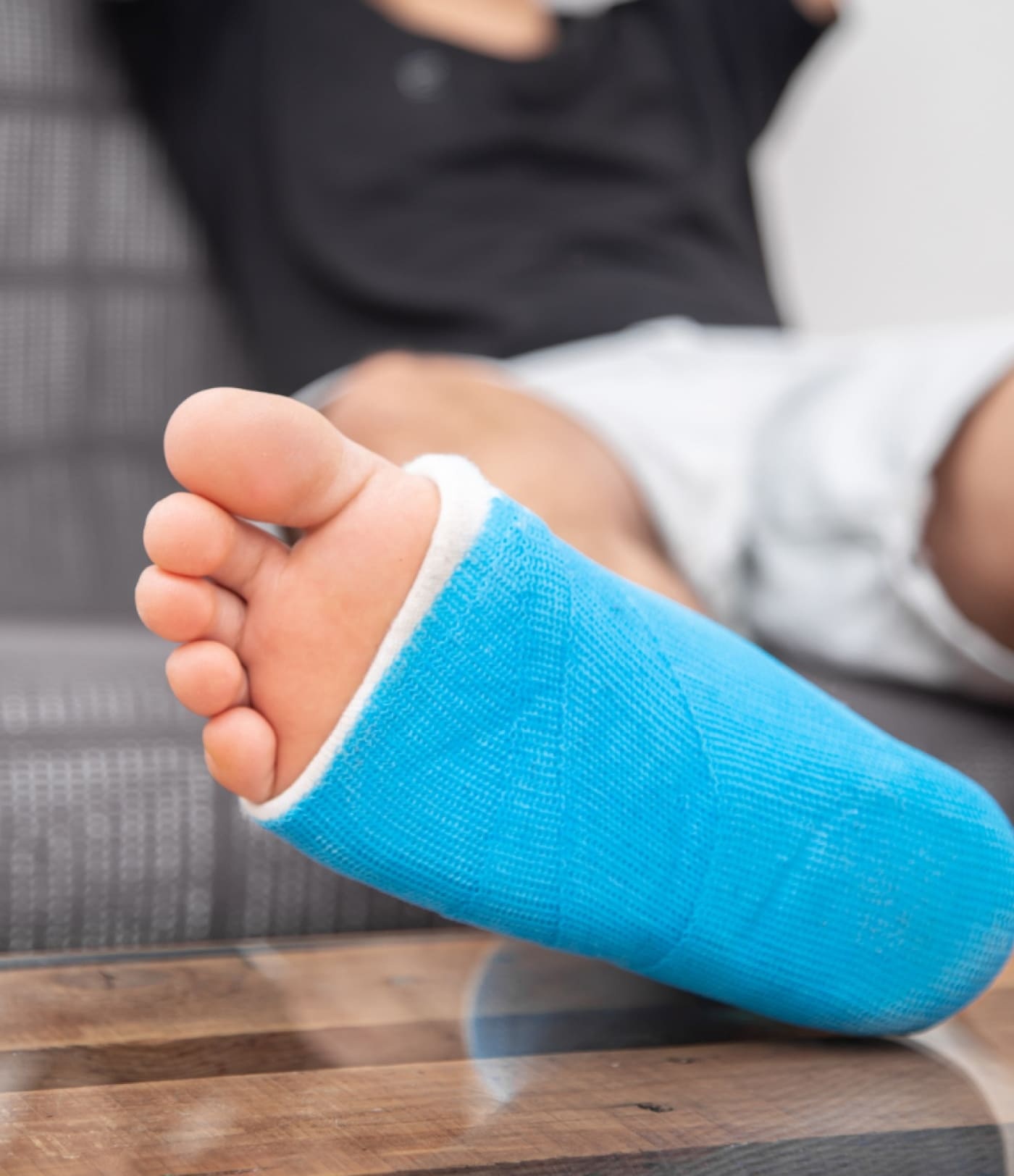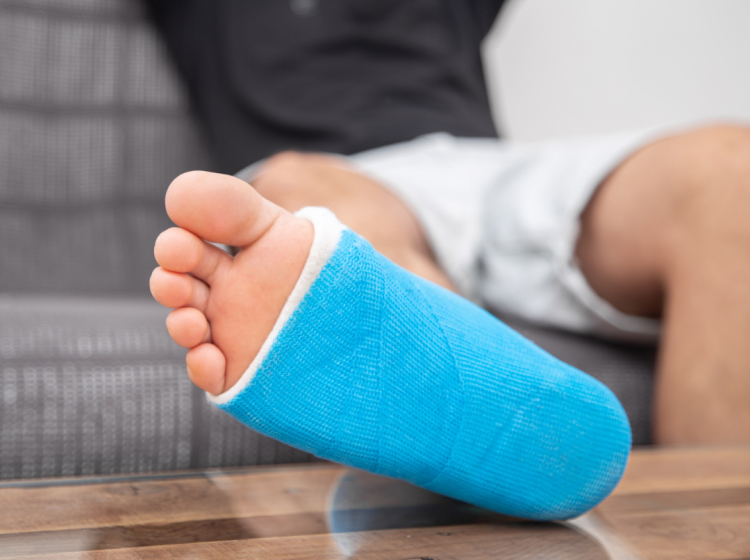Achilles Tendonitis Specialist In Singapore

Dr Wang Lushun
Senior Consultant Orthopaedic Surgeon
MBBS (Singapore)
MRCS (Edin)
MMed (Ortho)
FRCS (Ortho) (Edin)
- Find relief from pain and discomfort by treating your Achilles tendonitis
- Fellowship-trained orthopedic surgeon
- Internationally recognised, more than 1500 surgeries performed



What is Achilles Tendonitis?
Achilles tendonitis is a common condition that causes pain and swelling in the Achilles tendon, which connects your calf muscles to your heel bone. It’s often experienced by athletes and active individuals who put repetitive strain on their tendons. Proper treatment can alleviate pain and provide the following benefits:
- Improved performance in sports and daily activities
- Reduced risk of tendon rupture and long-term damage
- Quicker recovery and return to your normal routine
- Minimised pain and discomfort for a better quality of life
Signs You May Have Achilles Tendonitis
Achilles tendonitis usually comes with a range of symptoms, and early detection can help you get the proper treatment faster to avoid long-term complications. Here are common symptoms to look out for:
Pain and stiffness in the Achilles tendon
Occurs due to inflammation and micro-tears in the tendon, making it difficult to move without discomfort.
Swelling at the back of your heel
Your body's response to the injury, and can make walking or exercising painful.
Tenderness when touching the tendon
If the tendon is sensitive when you press on it, this could be a sign of inflammation caused by Achilles tendonitis.
Reduced range of motion
Achilles tendonitis can cause your ankle to feel tight and limit your ability to flex or point your foot, affecting your mobility.
Say goodbye to heel pain
and hello to pain-free movement.
and hello to pain-free movement.
Early detection and treatment for Achilles tendonitis allows you to continue living an active life.
When Is The Best Time To Have Achilles Tendon Repair Surgery?
Generally, it's best to have surgery as soon as possible after a complete rupture to maximize the chances of a successful recovery. However, for partial tears or chronic cases of Achilles tendonitis, it's may be possible to explore conservative treatments before considering surgery. Your orthopaedic surgeon will decide the optimal timing for the surgery, depending on various factors such as the severity of the injury, your overall health, and your body’s response to conservative treatments.


Am I A Candidate for Achilles Tendon Repair Surgery?
Achilles tendonitis can be treated using non-invasive methods, but for more severe cases like a completely torn Achilles tendon, surgery may be the optimal decision. Your orthopaedic specialist will assess your condition and decide whether surgery is needed based on several factors, such as:
- Severity of the injury: If the tendon is partially or completely torn, surgery may be recommended to restore function and prevent further complications.
- Patient’s age and activity level: Younger, active patients may benefit more from surgery to ensure a full recovery and return to their desired activities.
- Chronicity of the condition: If conservative treatments haven’t worked and you’ve been dealing with Achilles tendonitis for an extended period, surgery might be the next step.
- Overall health and medical history: Your orthopaedic specialist will consider your general health, any pre-existing conditions, and potential risks before recommending surgery.
How can I prevent Achilles tendonitis?
Achilles tendonitis can be prevented by gradually increasing your physical activity, warming up before exercising, and wearing proper footwear that provides good arch support. Incorporate calf-strengthening exercises into your routine, and consider using orthotics if you have flat feet or high arches.
When should I see a doctor for Achilles tendonitis?
Consult a doctor for Achilles tendonitis treatment in Singapore if your pain is severe, worsens over time, or doesn’t improve with self-care measures. If you experience a sudden, sharp pain or hear a popping sound during activity, seek medical attention immediately, as this could indicate a more serious injury such as a tendon rupture.
Achilles Tendon Repair Surgery Recovery Process
| Recovery Period | What to Expect: |
|---|---|
| Immediately after surgery (Week 0-2): |
|
| First few weeks after surgery (Week 2-6): |
|
| First few months after surgery (Week 6-12): |
|
| Several months after surgery (3-6 months): |
|
| 6 months and onwards after surgery: |
|


Dr Wang Lushun
Senior Consultant Orthopaedic Surgeon
MBBS (Singapore)
MRCS (Edin)
MMed (Ortho)
FRCS (Ortho) (Edin)
Internationally Recognised & Double Fellowship-Trained Surgeon With Over 18 Years of Experience
- Bachelor of Medicine & Bachelor of Surgery (MBBS),
National University of Singapore - Member of The Royal College of Surgeons (MRCS),
Edinburgh, United Kingdom - Master of Medicine in Orthopaedic Surgery (MMed),
National University of Singapore - Fellow of The Royal College of Surgeons in Orthopaedics and Traumatology (FRCS), Edinburgh, United Kingdom
As a Senior Consultant Orthopaedic Surgeon and former Head of the Hip and Knee Division in Ng Teng Fong Hospital, he has won awards for superior patient outcomes (value driven), service quality and enhanced recovery programmes. His patients include current and former national athletes and sporting professionals.
Why Choose
Dr Wang Lushun?
Trusted
Leadership on Orthopaedic Advisory Boards
Skilful
Double Fellowships at Centres of Excellence
Experienced
Senior Consultant with Over 18 Years of Experience
Can I Use Medisave For Achilles Tendonitis Treatment In Singapore?
Yes, you can use funds from your Medisave to offset the cost of your achilles tendonitis treatment.
Reach out to us today to learn more about payment options.
Patient-Centred Orthopaedic Care
We are dedicated to your recovery and well-being. Every patient deserves the freedom that comes with active living. Whether you're an athlete sidelined by an injury or a weekend hobbyist desperate to return to your passion, our mission is to help you regain your mobility and independence.
Personalised Approach For Positive Outcomes
Our clinic prioritizes time dedicated to understanding each patient’s injuries and needs. Dr Wang strongly believes that personalised care & patient management will lead to better outcomes & positive experiences.
Minimally Invasive Techniques For Faster Recovery
Dr Wang’s extensive experience with minimally invasive procedures allows for less scarring, lower risk of complications and faster recovery compared to traditional surgical methods.
Aftercare Focused On Restoring Mobility & Well-Being
As an avid sportsperson, Dr Wang understands the time and patience required to regain mobility and return to active living. After your procedure is completed, Dr Wang will make sure your recovery is smooth and comfortable.
Insurance
We accept all patients, with or without insurance plans. Additionally, we are on the specialist panels of these Health Networks/Insurance Plans. Please contact us if you have any queries and we will be happy to assist you in checking with your insurance provider.
Our Clinic Locations
3 Mount Elizabeth, #13-14
Mount Elizabeth Medical Centre
Singapore 228510
820 Thomson Road, Mount Alvernia Hospital, #05-51, Medical Centre D, Singapore 574623
Frequently Asked Questions
What causes Achilles tendonitis?
Achilles tendonitis is typically caused by repetitive strain on the Achilles tendon, often due to overuse or sudden increases in physical activity. Contributing factors include tight calf muscles, poor footwear, or training on uneven surfaces. Age, obesity, and certain medical conditions, such as flat feet or high arches, can also increase your risk.
Can Achilles tendonitis heal on its own?
Mild cases of Achilles tendonitis may heal on their own with rest, ice, compression, and elevation (RICE). However, more severe or persistent cases may require additional treatment, such as physical therapy, anti-inflammatory medications, or surgery.
How long does it take for Achilles tendonitis to heal?
The healing time for Achilles tendonitis can vary depending on the severity of the injury and the individual’s response to treatment. Mild cases may resolve within a few weeks with proper care, while more severe cases may take several months. Your orthopaedic specialist can give you a more accurate timeline based on your specific condition.
Can I still exercise with Achilles tendonitis?
Avoid activities that aggravate your Achilles tendonitis while you recover. However, you can still engage in low-impact exercises, such as swimming or cycling, which won’t put excessive strain on the tendon. Consult your orthopaedic specialist or physical therapist for guidance on appropriate exercises during your recovery.
Can Achilles tendonitis return after treatment?
Yes, Achilles tendonitis can recur if you don’t address the underlying causes or if you return to activities too soon after recovery. Minimize the risk of recurrence by following your orthopaedic surgeon’s recommendations.